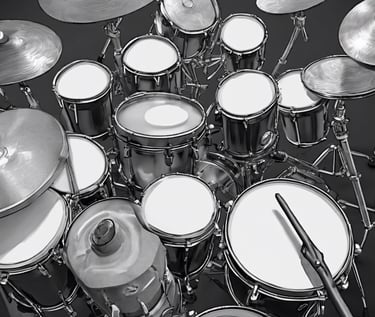Music Lessons
Professional music teachers offer one-on-one instruction or group lessons for students of all ages in individual studio rooms and open areas. Enrolling in lessons is a way to improve coordination, agility, and flexibility. You will learn about the history of music and instruments and build confidence by acquiring a new skill or ability. It also presents an opportunity for personal expression, relaxation and stress relief.
Location
901 Broadway, Hannibal, MO 63401
Events
By appointment only
Music Lessons
Professional music teachers offering studio one on one or group lessons. Playing an instrument can help you express yourself and get in touch with your emotions, improve memory and math skills. It can be a great way to release stress and pent-up emotions, and to connect with your core and enhance your sense of empowerment. Progressive lessons helps you build confidence and can also help you improve your focus and multitasking skills.


Voice Lessons
Sing with ease and clarity: Vocal lessons help you, as a singer, to achieve a finer grasp of a musical style, apt performance techniques, focus, proper articulation, and delivery. You will learn how to use proper breath support, increase vocal range, sing with ease and clarity and learn to project your voice.
Guitar, Mandolin & Ukulele Lessons
Without a good guitar, mandolin, or ukulele teacher, you may spend hours, days, weeks, months and even years trying to learn things with limited results, when a teacher might be able to show you in as little as a few minutes. Your progress is going to move much more rapidly (and correctly) with a professional teacher than without one.




Piano Lessons
Studying piano has also been shown to amazingly improve memory — particularly verbal memory — and build good habits like focus and perseverance, diligence and creativity. Children who had a few years of piano study under their belts could remember twenty percent more vocabulary words than their peers.


Drum/Percussion Lessons
Percussion lessons can have many benefits, including:
Physically: Playing the drums is a physical activity that can get your adrenaline flowing and improve your coordination. You need to use both hands and feet simultaneously, such as hitting the bass drum with one foot and the snare drum with both hands.
Mentally: Playing the drums requires a lot of critical thinking and brainpower. You need to use both hemispheres of your brain to keep the rhythm, improvise fills, and listen to other musicians. Studies suggest that playing the drums can enhance blood circulation and bring more oxygen and nutrients to the brain, which can improve your cognitive function and mental agility.


Low Brass Lessons
Trombone, French Horn, Tuba, Sousaphone, Baritone, Euphonium
There are several reasons why playing the low brass in a band or orchestra can be beneficial. It improves the overall tone, pitch, and rhythm. A strong low brass section can significantly improve the overall tone, pitch, and rhythm of an ensemble. A strong low brass section can help trumpets last longer and improve their accuracy. Practicing the low range can help players improve their skills, make their performances more consistent, and train their low range to be predictable. Playing in the low register at a low volume can help brass players preserve their embouchures, prevent lasting damage, and reduce pain while playing. The low brass anchors the harmony of the brass family and the whole orchestra.


Violin/Fiddle Lessons
One of the most immediate and gratifying benefits of learning the violin is the ability to express yourself creatively and emotionally. There's a depth to violin music that resonates with humans, making it a unique outlet for your creativity.
There are a few differences between playing the violin and the fiddle, including:
Playing style - Fiddlers tend to have a more freeform style, while violinists are more technical and precise. Fiddlers often improvise and play from memory, while violinists tend to follow a written composition exactly.
Instrument holding - Fiddlers often rest their palm against the neck, while violinists tend to leave more space between their hand and the neck.
Bowing - Fiddlers sometimes place their hand higher up the bow than violinists, which can make it easier to play at faster tempos.
Strings - Fiddlers often use steel strings, while violinists typically use gut or synthetic-core strings.
Bridge - Fiddles often have a flatter bridge than violins, which can make it easier to play double stops.
Music genre - Fiddles are typically used for country, bluegrass, Celtic, and other folk music, while violins are often used for classical and jazz.
